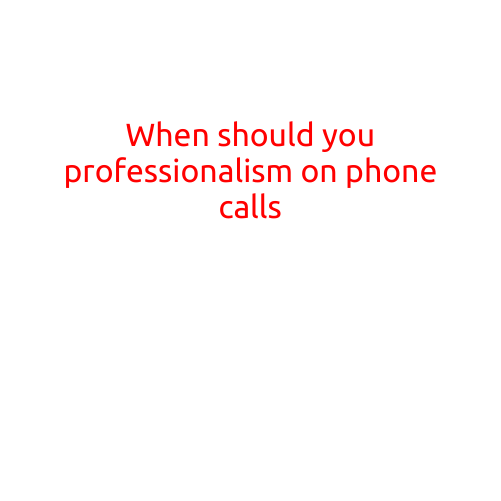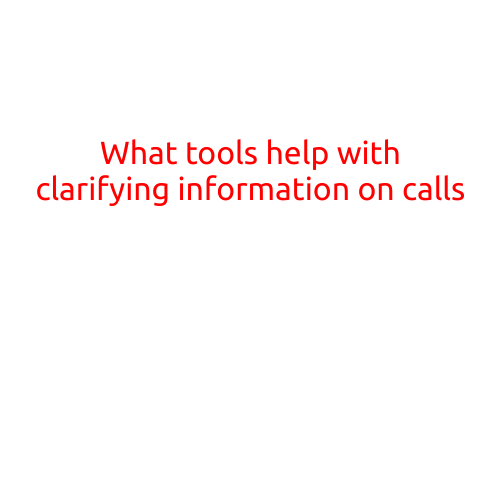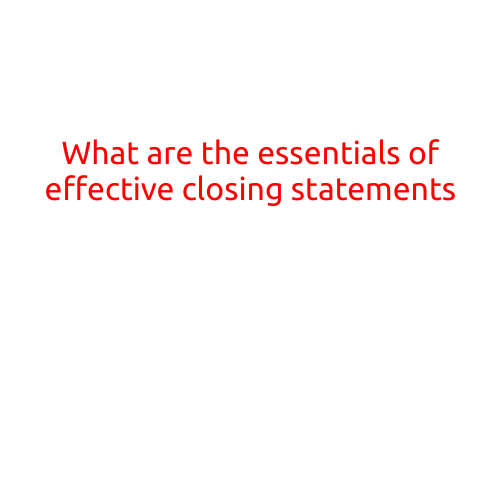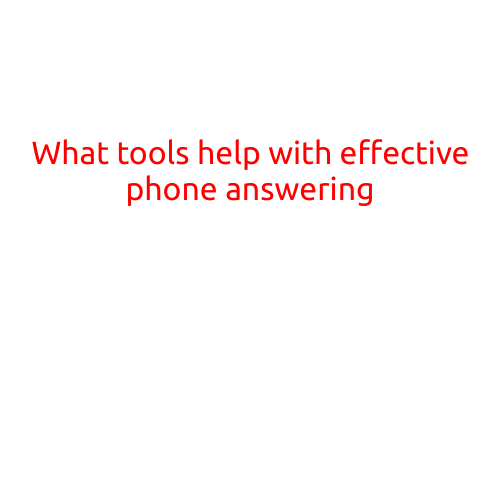
When Should You Practice Professionalism on Phone Calls?
In today’s digital age, phone calls are an essential part of both personal and professional communication. With the rise of mobile devices and voice assistants, making and receiving phone calls has become an integral part of our daily lives. However, not all phone calls require the same level of professionalism. Knowing when to practice professionalism on phone calls can make all the difference in maintaining a positive reputation, building trust, and achieving your goals.
When to Practice Professionalism
- Work-related calls: When you’re making or receiving work-related calls, it’s essential to maintain a professional tone, language, and attitude. This includes internal calls with colleagues, clients, or prospects. A professional demeanor shows that you’re taking your work seriously and are committed to delivering high-quality results.
- Client or customer calls: When communicating with clients or customers, professionalism is crucial to build trust, establish a rapport, and address their concerns. Remember, clients are investing in your services, and you want to ensure they feel valued and supported.
- Interviews or networking calls: When making or receiving calls for job interviews, networking, or business development, professionalism is vital. This is an opportunity to showcase your skills, expertise, and personality, and a professional tone will help you make a positive impression.
- Emergency or urgent calls: When handling emergency or urgent calls, such as medical or financial emergencies, a calm and professional demeanor can be lifesaving. Keep your voice steady, and speak clearly to ensure the person on the other end understands the situation.
When to Be Less Formal
- Personal calls: When making or receiving personal calls, such as catching up with friends or family, you can be more relaxed and casual. However, even in personal calls, being respectful and considerate of the other person’s time and feelings is essential.
- Social or group calls: When participating in social or group calls, such as conference calls or video meetings, you can adopt a more relaxed tone while still maintaining respect and professionalism.
- Follow-up calls: When making follow-up calls to check in or confirm appointments, you can be brief and to the point, as the primary goal is to confirm the details.
Tips for Practicing Professionalism on Phone Calls
- Answer promptly: Answer your phone calls promptly and professionally, even if you’re not expecting them.
- Speak clearly: Enunciate clearly and speak at a moderate pace to ensure the person on the other end can understand you.
- Be respectful: Treat others with respect and professionalism, even if you’re dealing with difficult or frustrating situations.
- Listen actively: Active listening is crucial in phone calls. Pay attention to what the other person is saying and show that you’re engaged in the conversation.
- Use proper language: Avoid using informal language or slang, and opt for professional language to maintain a polished tone.
In conclusion, practicing professionalism on phone calls is essential in both personal and professional settings. By knowing when to be professional and following simple tips, you can maintain a positive reputation, build trust, and achieve your goals. Remember, phone calls are an opportunity to make a lasting impression, so be mindful of your tone, language, and demeanor to make the most of your conversations.





